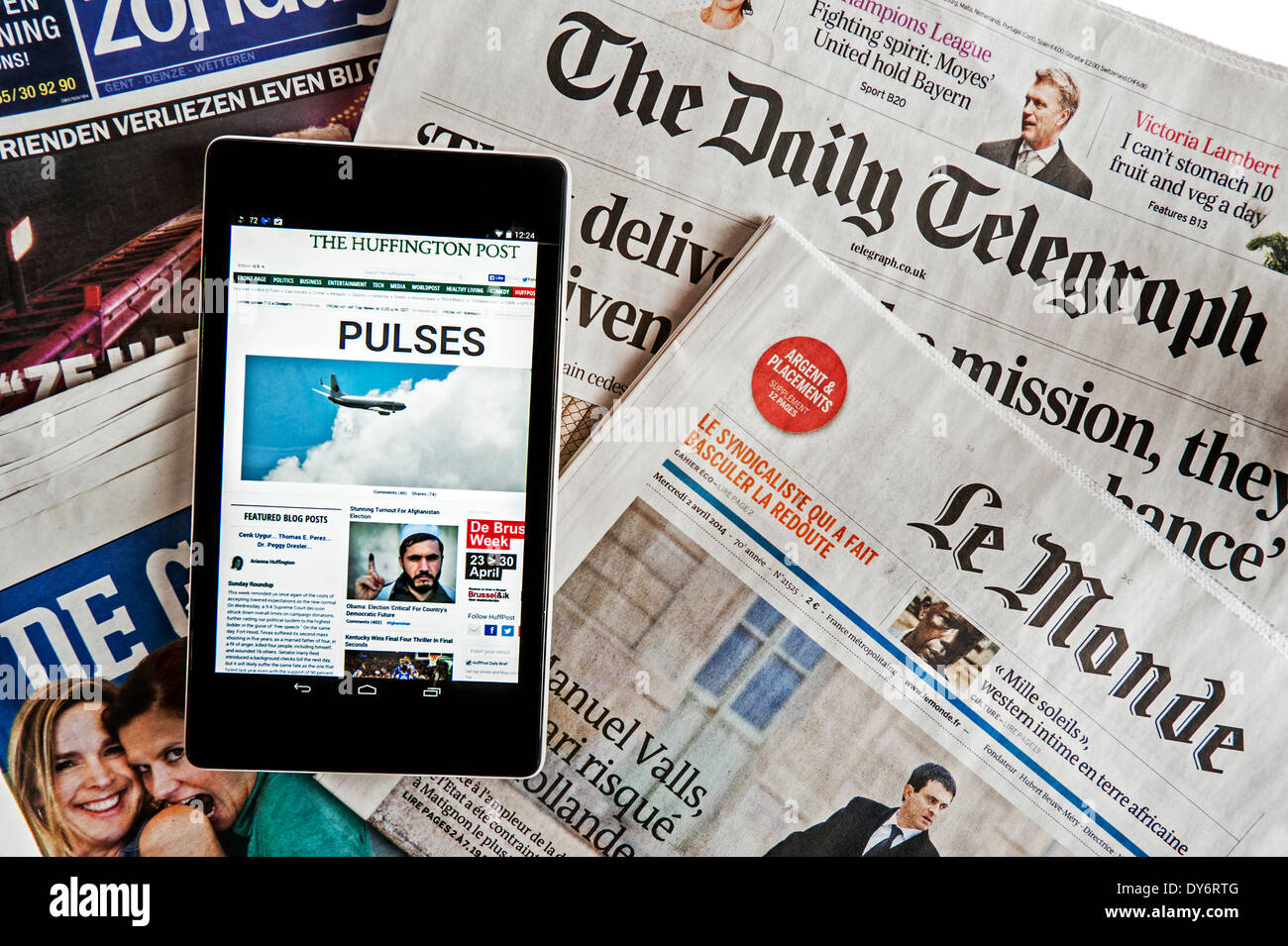The Beginner’s Guide to stnews.live Features
The Relevance of Fact-Checking on the planet of News Online
The prevalence of misinformation in today's on-line news landscape has gotten to worrying levels. Fact-checking companies play a necessary role in neutralizing this fad. They confirm cases and enhance the integrity of journalism. Nonetheless, the performance of these companies commonly rests on their techniques and public assumption. As target markets browse this complex environment, the implications of their searchings for might shape the future of news intake and trust. What does this mean for the integrity of information moving on?

The Surge of Misinformation in the Digital Age
Just how has the development of digital modern technology added to the spread of misinformation? The quick growth of the internet and social networks platforms has promoted the circulation of info at an unmatched pace. Customers can share short articles, video clips, and viewpoints with a plain click, typically without validating the content's accuracy. Formulas focus on spectacular or psychologically billed product, bring about a spreading of deceptive stories that record attention.
Furthermore, the anonymity managed by electronic systems enables people to spread false info without responsibility (stnews.live). False information prospers in echo chambers, where users are revealed primarily to viewpoints that strengthen their ideas, additionally lodging falsehoods. The saturation of info can bewilder users, making it testing to recognize reliable resources from unstable ones. False information has actually come to be a prevalent concern in the electronic landscape, impacting public viewpoint and depend on in legit news resources.
The Duty of Fact-Checking Organizations
Fact-checking companies play an important function in enhancing the trustworthiness of journalism by confirming claims made in report. Their efforts are vital in combating misinformation, ensuring that accurate details prevails in the electronic landscape. By holding media outlets accountable, these organizations add significantly to notified public discussion.
Enhancing Credibility in Journalism
While false information multiplies in the electronic age, fact-checking organizations play a crucial duty in boosting the integrity of journalism. These companies meticulously verify claims made in newspaper article, public declarations, and social media posts, ensuring that details shared to the public is precise and reliable. By offering independent assessments, they work as an important source for reporters, aiding them keep high standards of honesty. Furthermore, their initiatives promote openness in media, fostering public trust fund. As audiences come to be increasingly critical, the presence of trusted fact-checking entities can distinguish reputable news resources from those that may spread out fallacies. Inevitably, the dedication of fact-checking companies to copyright truthfulness is vital for the health of democratic discourse.
Combating False Information Efficiently
As misinformation remains to spread out quickly across digital systems, the duty of fact-checking organizations comes to be increasingly essential in the fight for accurate info. These organizations function as guard dogs, scrutinizing cases made by somebodies and media outlets to assure responsibility. By utilizing rigorous study methods and professional analysis, they confirm realities and make clear deceptive narratives. Their searchings for are shared through numerous networks, enlightening the public and cultivating essential reasoning. In enhancement, collaborations with social networks systems boost their reach, permitting for prompt flagging of false details. As digital proficiency grows, the influence of fact-checking companies is important in empowering audiences to discern reality from falsehood, inevitably adding to a more enlightened culture.
Exactly How False Information Affects Public Perception
False information considerably threatens rely on media, leading target markets to question the integrity of news sources. As a result, people frequently are attracted in the direction of outlets that reinforce their current ideas, contributing to the polarization of viewpoints. This dynamic creates a fragmented info landscape, where shared comprehending comes to be progressively difficult to accomplish.
Count on Media

Count on media has actually become increasingly delicate in the digital age, where the rapid spread of incorrect info can alter public assumption. As false information multiplies throughout social networks and on the internet systems, target markets usually find it challenging to recognize qualified resources from unreliable ones. This uncertainty promotes suspicion, leading numerous individuals to question the objectives behind news reporting. Subsequently, rely on developed media electrical outlets has actually diminished, as customers increasingly transform to alternative sources that may lack strenuous editorial criteria. This disintegration of trust not only influences individual ideas however additionally undermines the collective capacity to take part in notified discussions. Inevitably, the stability of journalism goes to stake, highlighting the vital need for effective fact-checking to recover confidence in the media landscape.

Polarization of Viewpoints
The boosting hesitation towards typical media has actually added to a growing polarization of point of views among the public. Misinformation, helpful hints commonly distributed through social media and online platforms, plays a considerable duty fit distinct ideological divides. People frequently choose info that lines up with their pre-existing ideas, strengthening their perspectives while dismissing opposing viewpoints. This resemble chamber result intensifies divisions, causing a fragmented public discourse where consensus comes to be progressively evasive. Additionally, sensationalized stories grow in this atmosphere, even more skewing public perception and cultivating suspect in qualified resources. As polarization escalates, the necessity for effective fact-checking becomes vital to link voids and advertise educated conversations, inevitably making certain a more cohesive society with the ability of navigating intricate problems.
Techniques for Reliable Fact-Checking
Effective fact-checking counts on a methodical strategy that consists of detailed research, verification of resources, and essential evaluation of claims. A foundational strategy is cross-referencing details from numerous reliable sources to validate its precision. Fact-checkers often make use of specialized data sources and archives to trace the origin of specific statements, guaranteeing that the reported info aligns with documented proof.
Another crucial approach involves inspecting the context in which cases exist. Misleading details can arise from out-of-context quotations or careful information usage. By examining the more comprehensive narrative, fact-checkers can determine potential predispositions or misinterpretations.
Additionally, involving with experts in appropriate areas can offer clarity and insight that boosts the fact-checking procedure. This collaboration can reveal nuances that laypeople may ignore - stnews.live. Ultimately, a self-displined method incorporating these methods cultivates a much more enlightened public, improving the integrity of information distributed in the electronic age
The Effect of Social Media on News Consumption
How has social media transformed the way individuals consume news? The development of platforms like Facebook, Twitter, and Instagram has notably transformed news intake patterns. News is currently shared swiftly, permitting individuals to access real-time updates and engage with content via sort, shares, and comments. This immediacy has actually cultivated a preference for bite-sized information, usually at the expense of in-depth evaluation.
Social media makes it possible for customized news feeds, where formulas curate web content based on individual preferences, developing resemble chambers that might limit direct exposure to diverse viewpoints. The role of typical news outlets has actually reduced as people progressively depend on peer referrals and trending topics. The integrity of details is usually endangered, as sensationalism can outweigh accurate reporting. In general, social media sites has actually improved news consumption, emphasizing rate and customization while testing the standards of journalistic honesty.
Empowering Audiences to Recognize Dependable Resources

Additionally, taking a look at the authorship and business background of news short articles can reveal possible biases. Cross-referencing information throughout numerous content credible electrical outlets even more enhances the verification process. Utilizing digital devices, such as internet browser extensions that rank the reputation of web sites, can likewise assist in determining reliable details. By actively engaging with these resources and cultivating a crucial way of thinking, target markets can better equip themselves to discern trustworthy news resources, ultimately fostering a much more enlightened society among the intricacies these days's media atmosphere.
The Future of Journalism and Fact-Checking
As the media landscape evolves, the future of journalism here are the findings and fact-checking deals with both challenges and chances. The rise of digital systems has democratized details dissemination, permitting varied voices to emerge. Nonetheless, this has actually also caused the proliferation of misinformation, demanding robust fact-checking systems. Journalists will progressively rely upon modern technology, consisting of AI devices, to confirm truths swiftly and effectively.
Collaboration in between news organizations and fact-checking entities is expected to enhance reliability and openness. Moreover, audience involvement will play a vital duty, as educated readers become substantial companions in determining reliable content.
The need for liability and accuracy is most likely to expand, pressing reporters to support high requirements in their reporting. Ultimately, the future of journalism may rest on its capacity to adapt to technical innovations while maintaining journalistic stability, ensuring that fact-checking remains a foundation of legitimate news.
Often Asked Concerns
How Can I Report Misinformation I Encounter Online?
To report false information encountered online, individuals can use platform-specific reporting devices, provide clear proof, and share the information with fact-checking organizations. Involving with area conversations can additionally help elevate understanding about the misinformation.
What Are Typical Signs of Misinformation in News Articles?
Common indicators of false information in newspaper article include astonishing headlines, absence of credible resources, emotional language, inconsistent facts, and lack of writer credentials. Readers should critically evaluate material for these signs to determine accuracy.
Just How Do Fact-Checkers Confirm Sources?
Fact-checkers validate resources by cross-referencing information with credible data sources, consulting specialists, and checking out the original context of insurance claims. They also assess the dependability of the resources, ensuring precise and reliable info for public intake.
What Lawsuits Can Be Taken Versus Misinformation?
Lawsuits versus misinformation might consist of libel claims, cease-and-desist orders, and regulatory fines. Victims can prosecute via civil courts, while some territories enforce penalties or assents on platforms sharing incorrect details.
Exist Apps for Fact-Checking News On-The-Go?
Numerous applications exist for fact-checking news on-the-go, consisting of Snopes, FactCheck.org, and PolitiFact. These applications aid individuals validate cases quickly, promoting educated decision-making and fostering an extra critical technique to consuming news in real-time.